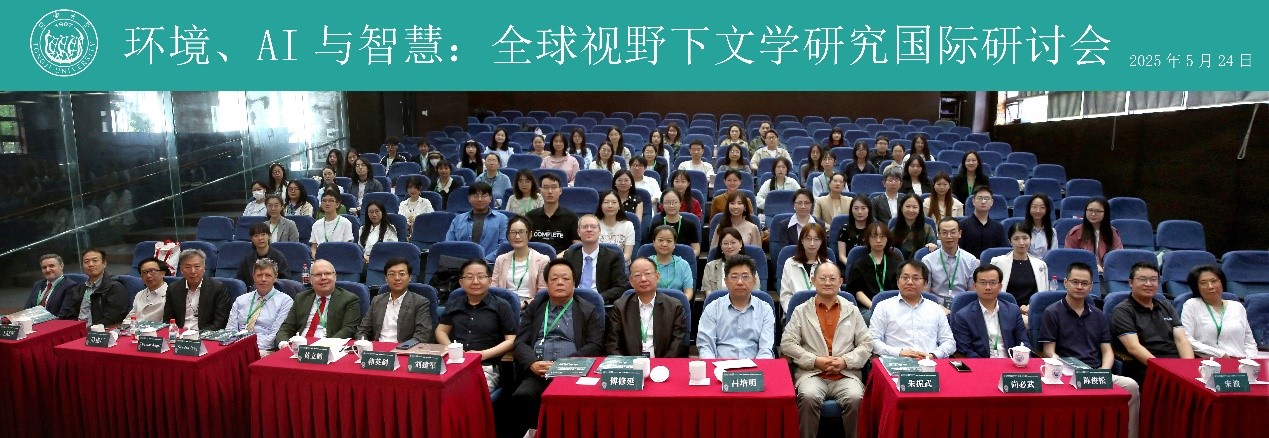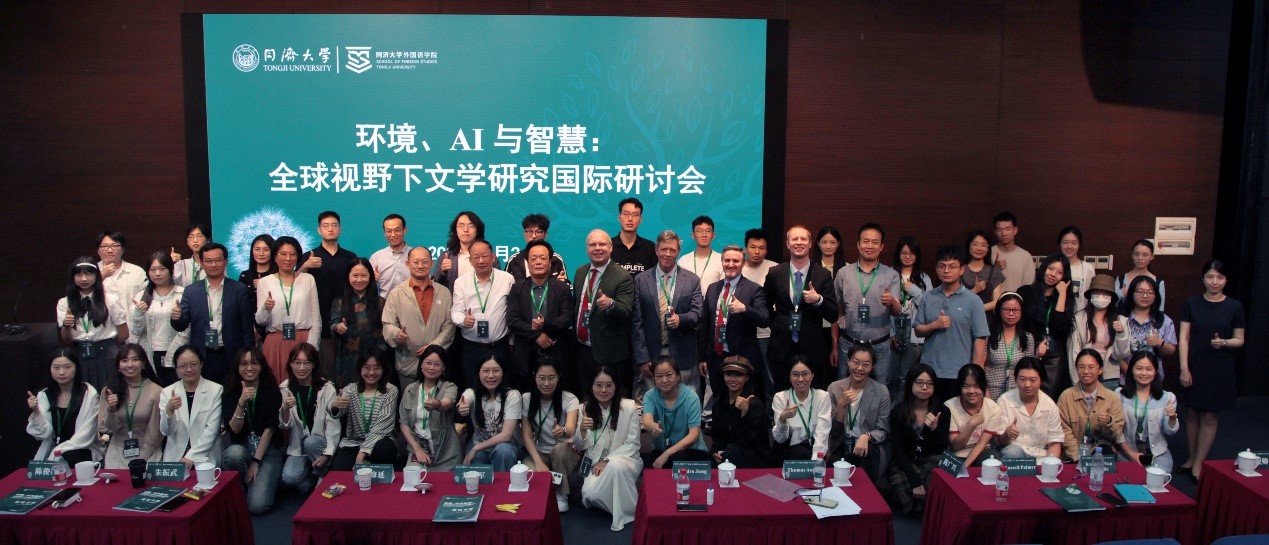On May 24, the International Conference on Literary Studies (ICLS) themed Environment, AI and Wisdom hosted by the School of Foreign Studies was held at Tongji University. LYU Peiming, Executive Vice President of the university, attended and spoke at the opening ceremony. Top scholars and outstanding young researchers from China, the United States, the United Kingdom, Germany, Italy, Japan, South Africa and other countries participated in the conference both online and offline to discuss the paradigm shift and theoretical innovation of literary research in the digital era.

LYU Peiming shared his understanding of the conference theme, environment, AI and wisdom. He stated that the academic accumulation formed by the century-old inheritance of the foreign language discipline at Tongji should play a leading role in developing the new liberal arts knowledge system. The person in charge of the Department of Liberal Arts Construction gave an in-depth analysis of the development opportunities and challenges of humanities disciplines in the digital era, emphasizing the need to establish a meta-theoretical framework for dialogue between humanists and technology, which triggered profound thinking among the participating scholars about the paradigm transformation of literary research.
The conference set up sessions such as expert keynote presentations, young scholar leading forums and panel discussions. Experts and scholars conducted in-depth discussions on topics such as ecological consideration in literary research under the globalization context, the impact of artificial intelligence, and life wisdom. The participating experts carried out critical discussions on literature and literary research in the AI era, revealing the profound impact of artificial intelligence on literary creation, criticism and theoretical construction. Professor Fu Xiuyan from Guangdong University of Foreign Studies commented that in the evolution from imitative culture to the AI symbol system, narrative forms are undergoing fundamental changes. When large models can generate complete stories, the traditional narrative framework of author-text-reader urgently needs to be reconstructed. He called for the establishment of a new theoretical paradigm compatible with human-machine narration. Professor Liu Jianjun from Shanghai Jiao Tong University discussed the development and changes of literary activities from collective, individual to new collective. When AI collaborative creation has now become the norm and the boundary between human and machine is difficult to distinguish, he imagined the future form of literature and called on literary scholars to make corresponding preparations in advance. Taking ChatGPT as an example, Professor Guo Yingjian from Renmin University of China analyzed how generative AI subverts the concept of originality and discussed a series of ethical and epistemological issues that algorithmic creation may bring.
Professor Zhu Zhenwu from Shanghai Normal University, emphasized the irreplaceable aesthetic uniqueness of literary translation by comparing machine and human translation cases as machine translation often hinders individuality and imagination, producing mediocre renderings. Professor Shang Biwu from Shanghai Jiao Tong University reinterpreted the Turing Test, using novels by Ian McEwan and Kazuo Ishiguro as examples to explore how contemporary British literature responds to ultimate questions such as whether machines lie or replace humans. Professor Sandro Jung from Fudan University revealed the wisdom of cross-media literary dissemination in the pre-AI era, through analyzing the visual representation of William Collins' poetry on objects such as jewelry and silk, thus providing historical insights for literary transformation in the digital age. Centering on literary studies and contemporary global issues, including cross-cultural and cross-media literary phenomena, Professor Scott Slovic from the University of Idaho analyzed reader responses to the 2024 State of the Earth’s Climate Report, and uncovered the challenges of climate communication. The study showed that political stances and entrenched ideologies influence public attitudes more than scientific information, thus calling for the development of more targeted new paradigms in environmental communication. Associate Professor Thomas Augst from New York University, drawing on the works of Emerson and Thoreau, proposed that in an era where digital culture impacts education, the concentration cultivated through literary reading and writing practices provides crucial humanistic wisdom to address AI challenges. Professor Kang Yanbin from Tongji University, through Ammons ’creative reading of Thoreau’s works, analyzed the Asian aesthetics in his poetry and revealed the deep resonance between American Transcendentalism and Eastern wisdom, offering new perspectives for contemporary ecological literary studies.
Through interactive exchanges, participants agreed that literary studies must break disciplinary barriers, maintain humanistic consideration, and actively respond to contemporary issues, so as to provide intellectual resources for building a community with a shared future for humanity. The head of the School of Foreign Studies stated that the conference not only provided a high-level platform for scholars in related fields but also set an example through innovative topic-setting and discussion methods for humanities and social sciences to address contemporary challenges. The school will continue to leverage its disciplinary strengths to advance literary studies in theoretical innovation and social service.

